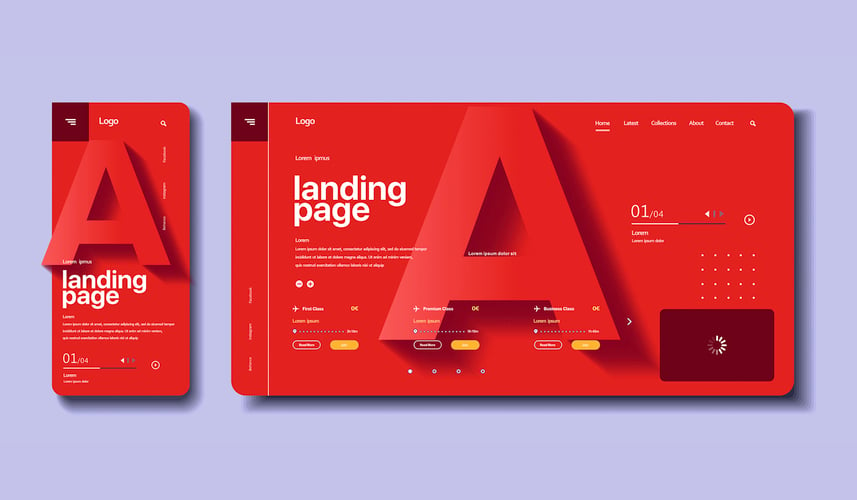Episode 56 - Creating Successful Multicultural Marketing Efforts for Banks and Credit Unions


Don't Miss An Episode, Subscribe Now

In a discussion between Meredith Olmsted, CEO of FI GROW Solutions, and Stephanie Chadwick, CEO and COO of Edge, the two experts delve into the complexities and nuances of multicultural marketing for banks and credit unions. They emphasize three key takeaways:
- The importance of "transcreating" rather than merely translating content to resonate culturally.
- The need for institutions to authentically incorporate diverse language speakers into their staff.
- The critical role of trust and authenticity in connecting with new, often underbanked, populations.
Transcription:
If you're looking for best practices for your bank or credit union, join us while we talk all things sales, marketing, and strategy for financial institutions. Let's make it happen with FI GROW Solutions.
Hi there. I'm Meredith Olmsted, CEO and founder of FI GROW Solutions, and I am here with a guest speaker who's joining me. Stephanie Chadwick is the CEO and COO of Edge out in Portland. Stephanie, tell us a little bit about your agency and what you do for banks and credit unions?
Hi everybody. Stephanie with Edge. Our company has been around for 22 years and we've served credit unions and financial institutions since 2008. And so we've been on the forefront of doing a lot of different things for the first time, whether it was social media, responsive website design, mobile apps, video projects, different things like that, multicultural marketing, lots of different avenues that we've thrown ourselves into with financial institutions for the first time and then became pretty good at it. So we're still doing it today.
Awesome. Well, so Stephanie and I have connected. I'm in Pittsburgh, she's out in Oregon, and we were having this really interesting conversation just now about multicultural marketing and how both of our experiences working with banks and credit unions over the last couple of years and really seeing the push and the need for reaching some of these growing new populations in lots of markets all over the country. And so I was like, "Stephanie, let's hit record. Let's share this with our audience," because I think there's a lot of takeaways here for marketers and really executives and even CEOs at banks and credit unions because this kind of an endeavor or these kinds of approaches have to come from the top, all the way down to the bottom and they have to be done right. That was the big takeaway that I think she and I were getting to. That's not easy. It's not quick. It's not going to be a quick fix.
So tell me something, Stephanie, when we're talking about wanting to put out digital assets, content, websites, landing pages, emails, to new populations, potentially populations that are not even English speaking as the first language, so maybe Spanish-speaking populations, for example, we know there's a big population of Spanish speakers growing in the United States right now. What is it that you are seeing around websites? I know you said something that was really, really cool to me. You said, "Don't translate your content, transcreate your content and the digital experience for these populations in this kind of a campaign or an approach for banks and credit unions." So unpack that for me. Tell me what you mean by that?
Absolutely. So when we think about translating, you think about just taking a script or taking a landing page and just pushing a button and going, "Okay, now it's in Spanish," but it is so much more than that. Really, using the word transcreate means you are creating it again in a new way that really fits the culture and the audience, while getting the same message across. It's not going to be word for word the same. So when I talk about writing a script for a Spanish-speaking audience, which you would look at me and you go, "Why are you writing this script?" I'm an empathetic marketer. I put myself in those shoes, but then I also reach out to the experts and I say, "Is this right?"
And so I wrote a script called La Familia, and I was talking about culture and food and family in the script. When I talked with our Spanish-speaking partners about it, and they talked to me about transcreating it, they use the word culture and they go foods, colors, flavors. That is how they got that feel across in the script, and it was a really beautiful thing. And I think one of the things to remember too, when you're thinking about using a different language is some languages take more than one word to replace another word.
So in Spanish, in English, I only took three years of Spanish in high school. So I can ask, "Where's a beer? Can I get another beer? And where's the bathroom?" Those are the two things I know how to say in Spanish now, and probably some really bad cuss words or something. So when you're talking about Spanish and English, it could take three words to replace an English word and get the same actual word.
Got you.
But to get those feelings, you have to leave breathing room in that space. So transcreating, it's looking at the whole cultural feel, not just the words or not just a picture.
Got you. There's a lot of detail there, a lot of nuance.
Oh, the nuance.
There's formal versus informal in those kinds of languages.
Yes.
Which we have in English too, but it can be-
If we say sir or madam, you're on the East Coast, so you have a little bit more of that older, probably not where you live, but thinking about Upper East Coast, there's a little bit more [inaudible 00:04:57].
Right, New England.
Seriously, but for me, I live in the Pacific Northwest. You can wear Birkenstocks to meet with your attorney and nobody is like, "What is wrong with you?"
Sure.
You know what I mean?
Yeah.
So yeah, it's different. So you got the [foreign language 00:05:09] with Spanish. Is this a formal, informal, are we talking to a grandparent? Are we talking to kids? That type of thing.
Yeah, and it's important to get it right because you're trying, just like you do in English, you're trying to project thought leadership, become a trusted financial advisor, but also not be so incredibly formal that they feel like you're not approachable or that you are just trying to make money off of them. So it is weird in these-
It's respect.
Yeah, these community-based financial institutions really have to walk a very thin line, so they really need to be doing it authentically. And a lot of times these populations, which you also mentioned, can be somewhat unbanked. They may actually be living in cash economies a lot of the time. They may not even be working with formal bank accounts when they're starting to consider setting up their first account with a new institution or something along those lines. So it's important that you're able to create content that they can understand, that resonates with them, that feels trustworthy, but approachable, all of that.
Definitely, I would say the bank and unbanked thing, the unbanked thing is huge. If you want to build trust with someone who doesn't have a lot of reasons to trust or hasn't been given reasons to trust, give them what they need. And one of the things that a credit union we worked with did is they made it really easy for people to send money out of the country and they had it all done in Spanish. I thought that was a really cool way to meet people where they're at.
Well, so they don't have to go to some of those higher interest or higher cost options.
Exactly.
Those quickly payday lending kind of-
Terrible.
Transfer options for them. And they can actually make those kinds of payments or those kinds of... Where they're moving their money a little more seamlessly just like we do, honestly.
I know.
I like to be able to move my money from one bank to another. Why should it be difficult? Even if you're going outside of country lines?
I agree.
You can make it a little easier. Why not? So yes, really trying to be authentic in if you want to have that positive impact and experience. You said something else about the CEO of the institution that you really did, a really involved move to become more multiculturally connected with these populations. Tell me a little bit more about that CEO and why that project you said took a longer time than maybe people might've expected.
I think that's probably one of the things is like I understand if financial institutions are feeling a little timid dipping their toe in the water because you want to do it right, you really shouldn't take shortcuts and it's going to take longer than you think. And so with this CEO specifically, his wife is from Mexico, his mother or grandparent is from Spain. He speaks fluent Spanish. He looked at the big picture and saw this is what this is going to take. One of the cool things that this credit union did is they received a designation called [foreign language 00:08:15], which means together we stand. They're the second credit union in the State of Oregon to actually get this designation. It means, "Hey, we are taking this very seriously." They put a Spanish speaker on the board. They have held huge parties with the group. They've sponsored the baseball team that is in Spanish. They've done these things. They've made sure that the website is translated but not just translated, transcreated. They're doing creative in two different languages.
But most importantly, before they started doing any of that, they made sure that they could support Spanish-speaking people in the branch, over the phone, on chat, whatever those things needed to be because they knew if they put it out there, but then they couldn't actually help the people, what was the point? So that's one of the greatest things I think they've done is they have a lot of Spanish-speaking people on their staff throughout the whole institution.
That is such music to my ears, and this is how you and I got on this conversation because I was sharing with you an experience that I had talking with somebody a few weeks ago who was asking me about possibilities of being able to implement a live chat option with some kind of automatic translate feature that did not require any kind of other language speaker at the other end of the chat. And I was like, "That's not a thing." Even if it was, I can't even imagine how much that would cost.
And then I got off the phone and I scratched my head and I was like, "Wait a minute, did they just imply to me that they wanted to serve this Spanish-speaking population without hiring any Spanish speakers?" And I got really upset about that to be honest, because what I said to myself, and then what I said to my staff, my team, is that when it comes back up or if it came back up, we were going to very nicely, or maybe even not so nicely, say, "Hey, if you are interested in serving a different language population but you are not interested in employing anybody in that population that speaks that language, maybe you're not ready for this approach."
No.
Because in my opinion, you should not be claiming or trying to serve a population you're not willing to employ, and it's kind of offensive. So I think it's really, really important to make sure that from an authenticity standpoint, if you want to be pushing out into a new population, into a new area, into a new language, a new population of people who are speaking a different language, you have to bring those people in. You have to make them a part of your organization authentically, welcome them, hire them, and have them help you be real with those populations that you want to serve.
I love that. And that's just a beautiful thing. That adds to everything in the environment of the institution itself. It just makes it a richer, more meaningful place to work. And the community, if you want to build the trust, trust and authenticity go together. And so you can't do one and not the other.
A 100%, a 100%. We have a great client out in the Oklahoma area who is actually building out a whole brand to support their efforts with the Spanish-speaking communities there.
Amazing. What a huge effort.
And they're even opening a branch that is targeted and going to be completely staffed with Spanish speakers and all of these materials that are really crafted to help meet the financial needs of that community. And I think that's really what you want to see community-based financial institutions doing when they're trying to serve those populations. Do it authentically, do it from the heart, take your time, don't rush into it and make sure that the meaning is there and that you're meeting people where they are.
So awesome conversation. I love what you all are doing out in Portland with multicultural marketing and with credit unions and banks out there in general. Hopefully, Stephanie, maybe we can have another conversation like this in the future.
I would love to.
So thank you so much for your time. This is super useful. And if you all want to learn more about marketing and sales for banks and credit unions, please visit us at figrow.com. We have lots of other great resources there, podcasts, blogs, case studies, all those things. But in the meantime, let's just all get out there and make it happen.








Blog comments